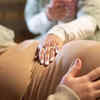OPINION: Bring back Wichita State football – The Sunflower
How To Improve Fertility In Women With PCOS

How To Improve Fertility In Women With PCOS (Image credit - Freepik)
Infertility has turned out to be a major issue these days especially with more women suffering from PCOS and PCOD. If you're reading this, chances are you or someone you know is dealing with Polycystic Ovary Syndrome (PCOS) and its effects on fertility. Well, guess what? You're not alone in this journey, and there are ways to boost your chances of getting pregnant. In this article, we'll discuss how to improve fertility for women with PCOS by making tiny little changes to your lifestyle.
PCOS may show up without an invitation and cause serious troubles with your hormones. PCOS can lead to hormone imbalances that affect your menstrual cycle and ovulation, making it tougher to conceive. Here are some tips to boost fertility in women who have PCOS.
Related News Previous
World Menopause Day 2023: What not to eat and drink during menopause

How to Age Gracefully with Ayurvedic Wisdom

Can Too Much Of Good Cholesterol Be Bad For You?

Ayurvedic Expert Shares 7 Healthy Dishes To Have During Navratri

The Uncomfortable Truth About Your Child's Screen Time
NextHealthy Lifestyle - Maintaining a healthy weight and eating habits is vital for managing PCOS and boosting your fertility. Focus on a well-rounded diet filled with fruits, veggies, whole grains, and lean proteins. Avoid sugary and processed foods. Regular exercise can also help balance your hormones and improve your fertility.
Stress management - Stress can be a real troublemaker when it comes to PCOS. Practice relaxation techniques like yoga, meditation, or mindfulness to keep your stress levels in check. Lower stress can help you maintain better hormone balance and enhance your fertility.
Cut down caffeine and alcohol - Think about cutting down on caffeine and alcohol. Both can disrupt hormone balance and fertility. Opt for herbal teas or non-alcoholic alternatives whenever you can.
A proper sleep cycle - Sleep isn't just for beauty; it's essential for hormone regulation and overall health. Aim for 7-8 hours of quality sleep each night. Establish a calming bedtime routine to ensure you get the rest you need.
Eat folate-rich foods - Folate, or folic acid, is crucial for a healthy pregnancy and baby. Include folate-rich foods in your diet and consider a supplement if your doctor recommends it.
Regular medical check-up - Don't forget to visit your healthcare provider regularly. They'll keep an eye on your progress and make any necessary adjustments to your treatment plan. Your journey to fertility might have its twists and turns, but with the right guidance, you'll reach your destination.
No matter what, be patient with yourself as dealing with PCOS and fertility struggles can be tough. However, with the right lifestyle changes, medical support, and a positive attitude, it's absolutely possible. Stay optimistic, stay healthy, and keep moving forward.
DISCLAIMER: The content in this article is for educational purposes only and not intended as professional advice.
Naturally Occurring Anti-aging Compound Enhances Fertility In Older Mice
Researchers have found that a naturally occurring compound enhanced fertility in older female mice by reversing age-related reproductive cell decline, causing them to produce larger litters. The discovery could one day aid in developing treatments to improve human fertility.
As women age, the immature egg cells in their ovaries, called oocytes, deteriorate and decrease in number, making it more difficult for them to fall pregnant naturally or with assisted reproductive treatment like IVF. A woman is born with a fixed number of oocytes, which mature from within a follicle found in the outside layer of the ovaries. During each reproductive cycle, several follicles begin to develop and, typically, one oocyte each cycle will become a mature egg and be ovulated from its follicle.
Previous studies into spermidine, a compound that was first isolated from sperm but is now known to have functions in many types of cells, have shown that it lengthens lifespan in yeast, flies, worms and human immune cells. Research on animal models demonstrated anti-aging properties, reducing age-related problems like cardiovascular disease in mice and cognitive decline in fruit flies.
However, the effect of spermidine on oocytes was unknown. So, in a new study, researchers tested the compound on older female mice to see whether it produced any benefits. First, they compared ovarian tissue from young and middle-aged mice and found that the tissue from older mice contained far less spermidine. They also had poorer-quality oocytes and more degraded follicles.
To see whether the oocytes' condition was related to reduced spermidine levels, the researchers injected some older mice with the compound. Compared to a control group, oocytes in the spermidine-boosted mice developed more quickly and had fewer defects. The mice also had more follicles, a measure often used in humans to estimate the number and quality of oocytes. The results were the same when spermidine was provided as an oral supplement in the mice's drinking water.
The researchers observed that spermidine improved the success rate of the formation of blastocysts, the cluster of dividing cells that develop into embryos, and that older mice who'd been given spermidine and then conceived naturally had around twice as many young per litter as control mice of the same age.
Digging deeper, they sequenced the RNA from the oocytes of differently aged mice and found that the genes linked to cell energy production and processes that clear away cellular debris had different expression patterns in young mice, older mice, and older mice that had received spermidine.
The oocytes of spermidine-treated mice had recovered their ability to clear cellular debris, and mitochondrial function was enhanced. A similar effect was seen in pig oocytes placed under oxidative stress, a dominant feature of aging, suggesting that spermidine's mechanism of action was similar across species.
When the researchers treated lab-cultured oocytes with a molecule that inhibits the removal of damaged mitochondria (mitophagy), they found the spermidine-treated cells matured much slower than the untreated ones, further suggesting that the compound works with the cell's clean-up processes to produce its anti-aging effects.
"Although we have known about the anti-aging properties of spermidine, we were still surprised by its remarkable effects," said Bo Xiong, corresponding author of the study.
The study's findings have already generated a lot of interest in the medical community.
"The implications of these findings are far-reaching," said Alex Polyakov, gynecologist and fertility specialist at Melbourne IVF and the Royal Women's Hospital. "While tremendous advances in fertility treatments over the past few decades resulted in drastically improved IVF success rates, female age remains the main obstacle to success since IVF cannot counteract the effects of age on the quality and quantity of oocytes that can be obtained. The holy grail of reproductive medicine would be a technique or treatment that could reverse the effect of age on the ovaries. Zhang et al. Appear to have discovered such a holy grail."
The next step for the researchers is to see whether these results translate to humans. They plan to test spermidine fertility-enhancing properties on human oocytes in the lab to see what doses are safe and effective and whether other bodily processes are affected by the compound.
"We need precise clinical trials to address these concerns before spermidine can be applied to boost fertility in humans," Xiong said.
The study was published in the journal Nature Aging.
Source: Nanjing Agricultural University via Nature, Scimex
Want To Boost Fertility? Scientists Have Developed A 'magic' Formula Of Prenatal Vitamins That Has Helped Women Across The States Fall Pregnant Fast (and You Can Save 15% Right ...
SHOPPING – Contains affiliated content. Products featured in this Mail Best article are selected by our shopping writers. If you make a purchase using links on this page, DailyMail.Com will earn an affiliate commission. Click here for more information.
Whether you're trying to get pregnant now or think about trying to conceive in the future, you need to know about Perelel.
From vitamins that support you as you're trying to conceive to vitamins that nourish a growing pregnancy, Perelel takes making babies seriously so that you don't have to stress. Even better, new customers can save 15 per cent on their first purchase site-wide on the Perelel website with the code DAILYMAIL15.
Perelel Conception Monthly Support Pack - 5 Pills Per DayThe Conception Support Pack contains a 30-day supply of vitamin sachets, each containing 5 capsules to ensure your body has enough energy to conceive and to support neural development of the baby from day one.
Rather than a one-size-fits-all prenatal vitamin, which requires extra research to top it up with other minerals, the Perelel pack has all you need.
New shoppers can save 15 per cent with our code DAILYMAIL15.
$42.50 (save 15%) ShopRather than doing hours of research to make sure you're taking the right vitamins for baby and yourself, Perelel has consulted leading OB/GYNs and top reproductive endocrinologists to provide everything you need in a monthly pack.
The Conception Support Pack, which some pregnant ladies have described as 'magic', consists of five daily supplements that can be consumed on the go.
There are 30 sachets in the Perelel Conception Support Pack, all of which contain five vitamins that will aid with conception
Costing just $42.50 for all five daily pills with the discount, the price of getting pregnant could be more affordable than you could have ever imagine.
With folate instead of the synthetic version folic acid and the chelated format of key minerals for optimal absorption, the supplements are easy on the gut so you can take them without side effects.
Key vitamins and minerals include a significant amount of choline, which supports fetal neurodevelopment. Omega DHA + EPA supports brain development and provides mood support and CoQ10 supports egg health and plays a vital role in energy production, which can help your body prepare for pregnancy.
The cheapest way to order is to commit to a regular subscription, which can be swapped for the Perelel 1st Trimester supplements once you do fall pregnant.
Perelel is the first and only OB/GYN-founded vitamin brand offering clean, targeted nutrition for each distinct stage of a woman's reproductive life cycle
This could be fast if the reviews on the Perelel website are anything to go by.
'Used for one month and was able to get pregnant immediately,' shared one impressed shopper. 'Excited to use the rest of the products for the duration of the pregnancy.'
Shoppers say the Perelel supplements are easy to swallow and pass through the body smoothly without side effects
Another wrote: 'Was taking Perelel for a couple months before began trying. Got pregnant my second month trying!'
To read more about the key ingredients and to use your 15 per cent discount, head to the Perelel website to shop. The code you need to know is DAILYMAIL15.



Comments
Post a Comment